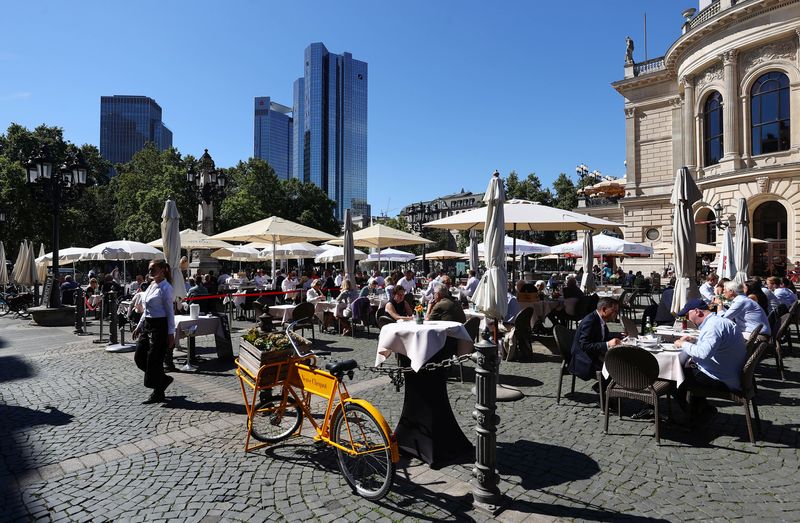Euro zone business activity contracts unexpectedly in September, PMI shows
2024.09.23 04:43
LONDON (Reuters) – Euro zone business activity contracted sharply and unexpectedly this month as the bloc’s dominant services industry flatlined while a downturn in manufacturing accelerated, a survey showed on Monday.
The downturn appeared broadbased with Germany, Europe’s largest economy, seeing its decline deepen while France – the currency union’s second biggest – returned to contraction following August’s Olympics boost.
HCOB’s preliminary composite euro zone Purchasing Managers’ Index (PMI), compiled by S&P Global, sank to 48.9 this month from August’s 51.0, below the 50 mark that separates growth from contraction for the first time since February.
A Reuters poll predicted a modest decline to 50.5.
“The euro zone is heading towards stagnation,” said Cyrus de la Rubia, chief economist at Hamburg Commercial Bank.
“Considering the rapid decline in new orders and the order backlog, it doesn’t take much imagination to foresee a further weakening of the economy.”
Overall demand fell at the fastest rate in eight months. The new business index plunged to 47.2 from 49.1.
A services PMI sank to 50.5 from 52.9, below all expectations in the Reuters poll which had predicted an easing to 52.1.
That was despite firms increasing charges at a shallower rate. Services inflation eased and the output prices index came in at 52.0 versus August’s 53.7, its lowest reading since April 2021.
“With the ECB closely watching the persistently high inflation in services, the news that both input and output price inflation has slowed down is certainly welcome,” de la Rubia said.
The European Central Bank cut interest rates again on Sept. 12 and signalled a “declining path” for borrowing costs in the months ahead as inflation slows and economic growth in the euro zone falters.

A PMI covering manufacturing, which has been sub-50 for over two years and was forecast at 45.6, dropped to 44.8 from 45.8. An output index fell to 44.5 from 45.8.
Business optimism waned, suggesting purchasing managers do not expect an imminent turnaround, while the factory future output index sank to an 11-month low of 52.0 from 57.5.








